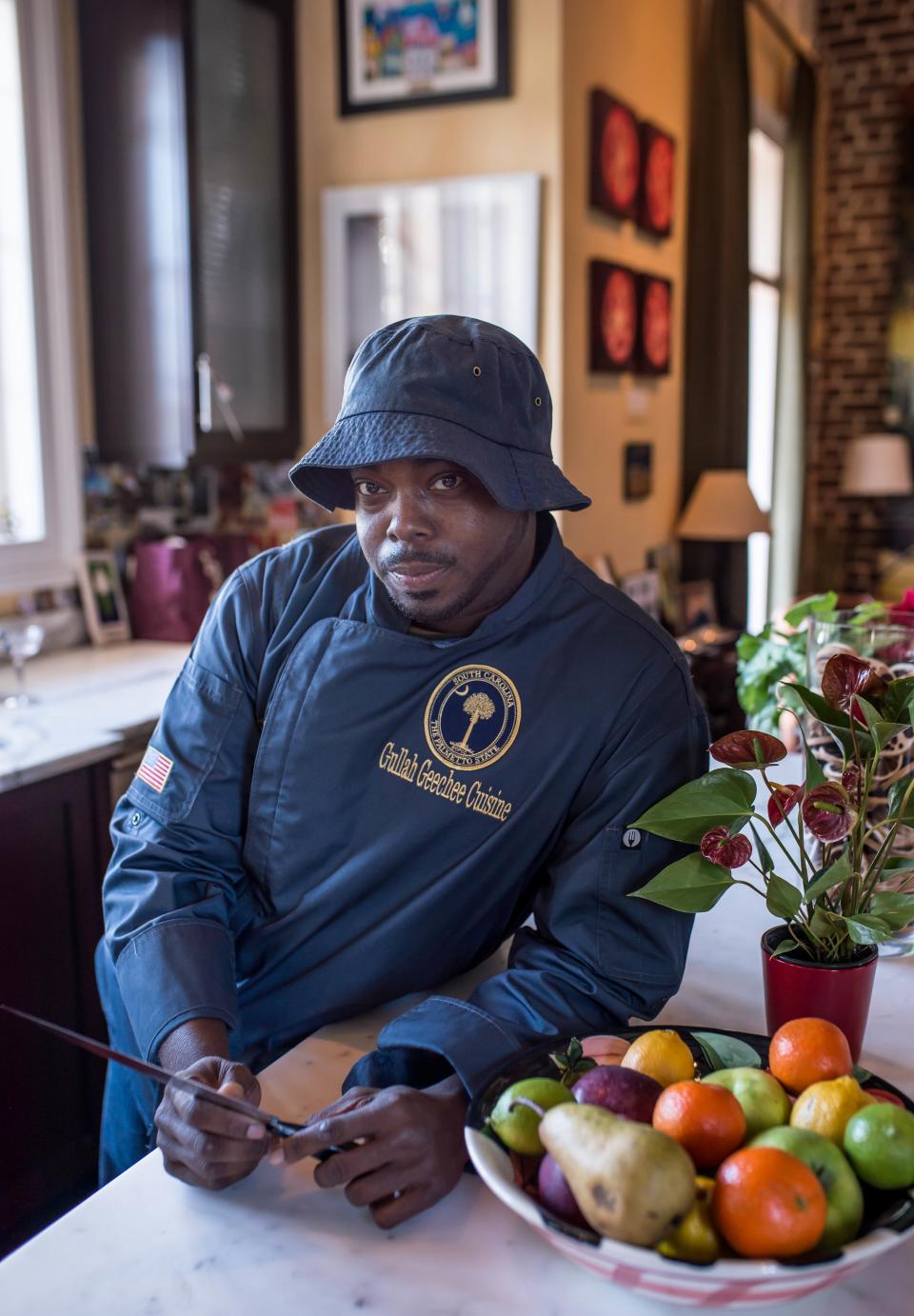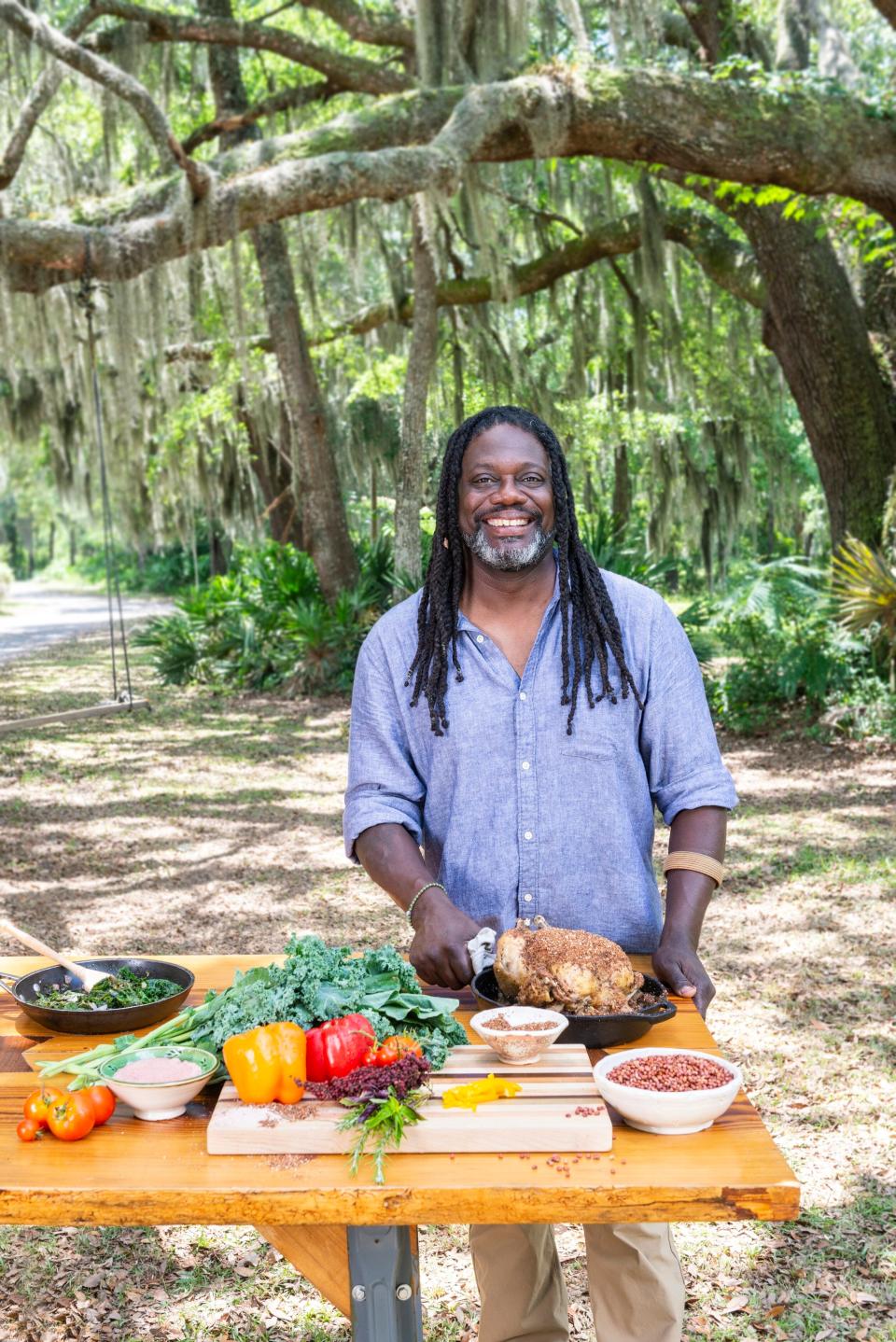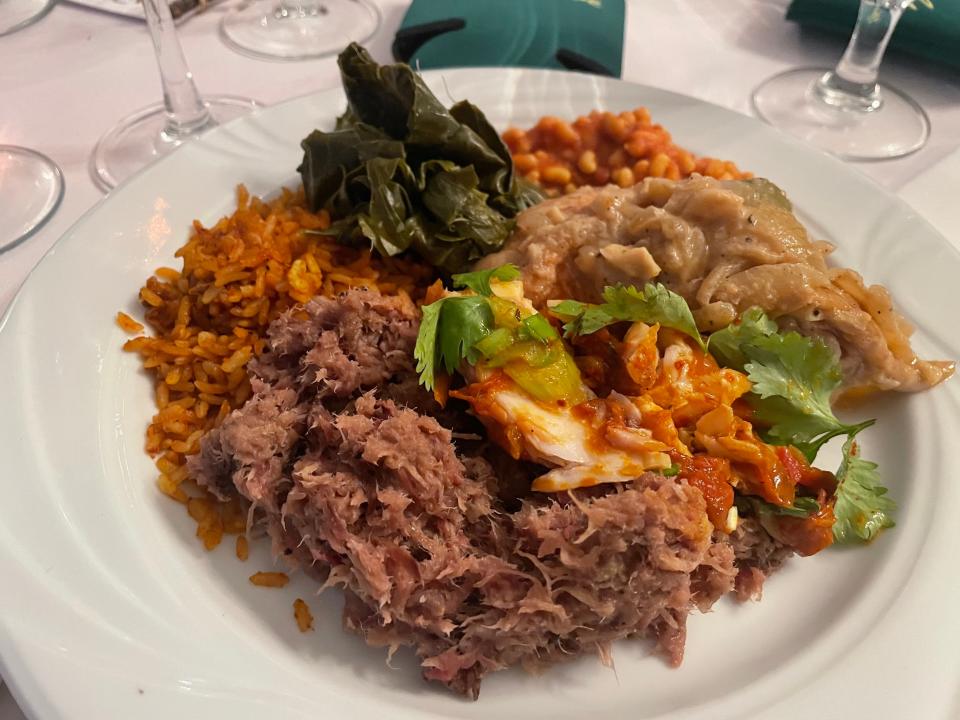Shaping the palates of America: Gullah Geechee foodways influence white cloth experience
New Year's Eve for chef Benjamin "BJ" Dennis as a child was celebrated with a watch-night service and the anticipation of eating a plate of Hoppin John', also known as Reezy-peezy.
It was a family affair, with memories of going to the houses of different family members, each home filled with the scent of greens, fried fish, smoked chicken and their own pot of the peas and rice dish.
Hoppin' John is a Gullah Geechee cultural staple that is most notably eaten during New Year's celebrations. Eating the dish filled with crowder peas is thought to usher in a year of good luck, health and prosperity. The tradition, which can be traced back to Africa, has long been a way of celebrating the New Year in the South.

For Dennis, who is from South Carolina, infusing Gullah Geechee culture into his cooking has become a way of life. So much so that he considers himself a Gullah cultural bearer.
Turning the Tides:Heritage crops helping revive Gullah Geechee communities, foodways
"I think it became one of those dishes that not only was significant to us in the Gullah Geechee community, but it became a part of the Southern vernacular of foodways," Dennis said. "It kind of tells me, personally, how much influence we truly have on Southern foodways and traditions. Even though they may have not given us that credit in the mainstream up until recently, these things were part of our heritage that became part of the Southern culture in general."

The Gullah Geechee community are local descendants of enslaved West Africans who populated the sea islands and coastal mainland between Jacksonville, N.C., and Jacksonville, Florida. The Gullah lived in the Carolinas; the Geechee in Georgia southward. They ultimately cultivated the land to create many recipes and dishes that have greatly influenced mainstream Southern cooking like red rice and shrimp and grits.
Subscribe to The 912: Amplifying the Black community in Savannah, featuring Black stories, art, food and more
Four-hundred years later, the emergence and prominence of Gullah Geechee dishes in Southern cuisine are being carried by people like chef and farmer Matthew Raiford. Raiford is in a unique position where the hands that cook the dishes are also the ones planting the seeds.

Reclamation of foodways
Raiford and his family own and operate Gilliard Farms, where he is the sixth generation to farm the land since 1874. For Raiford, the soul and integrity of Gullah Geechee foodways remain through the cultural tradition of orally passing down recipes and holding others accountable for how the food is presented by being gatekeepers.
Essentially, the recipe by your great-great-great-grandmother is still the recipe being used today.
More: Chefs, farmers and storytellers gather to connect Gullah Geechee foodways and culture
"We are griots. We are not storytellers; we are truth-tellers. We are documentarians based on oral history," Raiford said. "Being a griot is also about the foodways. When you move something from one place to another and you're trying to maintain it, you're being a griot. You're not trying to change it so that it can fit into the mainstream."

While Hoppin' John is a dish synonymous with Jan. 1, it is eaten year-round by families all over the South. However, when you search through images of Hoppin' John on the internet, you may notice that the dish appears to look and be made different than traditionally intended; there are added ingredients and presentations that misrepresent the dish.
Raiford said it's important to acknowledge that not every bean in a rice dish can make the dish Hoppin' John. If the dish has lima beans or black beans rather than the traditional field, crowder peas, then the dish is not culturally accurate.
The misrepresentation of cultural foods is not an uncommon practice when they are adopted in the West. To combat that, Dennis said it's important to continue to acknowledge the history of dishes so they're not distorted.
More: Sea-level rise threatens Gullah Geechee land, way of life. They have a plan to save it
"You Google it and the first dishes that come about are not even from the Gullah Geechee cultures. And it's like, okay, now they've taken it. It's kind of what we've been through in general. They take what's ours and turn it into something else. And then the story is lost," Dennis said. "It's up to us to tell the story. Be proud of that story. Put it out there, in our own words, and also come back with the facts."
Raiford said the reclamation of what the Gullah Geechee foodways truly are is also becoming mainstream and it's all in the hands of the chefs and farmers. As he watches more and more people seek access to heirloom seeds with generations of heritage and conversations surrounding diets that are staples of Gullah Geechee foodways, he's optimistic about the future of Southern cuisine.
"I think that as long as we have farmers and chefs that are monitoring what they're doing in the soil, monitoring how they're growing, monitoring how they're selling, how they're putting it on a plate with chefs and how we consume it, I think those are the things that are going to keep that light — keep that thing being propelled, which is what our foodways are like."
Laura Nwogu is the quality of life reporter for Savannah Morning News. Contact her at lnwogu@gannett.com. Twitter: @lauranwogu_
This article originally appeared on Savannah Morning News: Georgia, South Carolina chefs keep Gullah Geechee foodways alive

